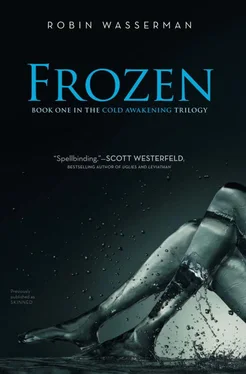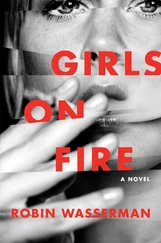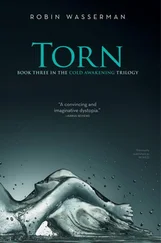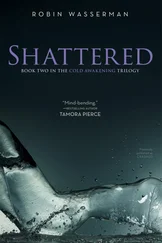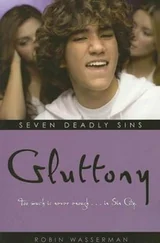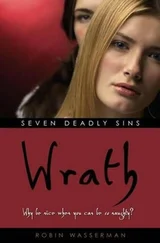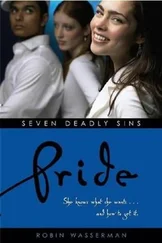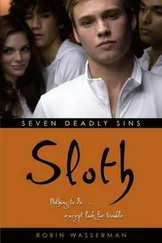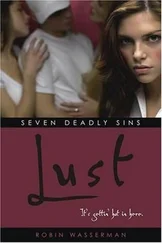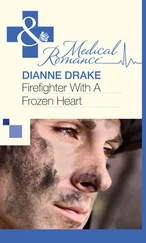For Norton Wise, under whose warm and watchful eye this story first began, even if neither of us realized it at the time
If you had never seen anything but mounds of lead, pieces of marble, stones, and pebbles, and you were presented with a beautiful windup watch and little automata that spoke, sang, played the flute, ate, and drank, such as those which dextrous artists now know how to make, what would you think of them, how would you judge them, before you examined the springs that made them move? Would you not be led to believe that they had a soul like your own…?
—Anonymous, 1744 Translated from the French by Gaby Wood
“As last days go, mine sucked.”
Lia Kahn is dead.
I am Lia Kahn.
Therefore—because this is a logic problem even a dim-witted child could solve—I am dead.
Except here’s the thing: I’m not.
“Don’t panic.”
It was my father’s voice.
It was—and it wasn’t. It sounded wrong. Muffled and tinny, but somehow, at the same time, too clear and too precise.
There was no pain.
But I knew—before I knew anything else—I knew there should have been.
Something pried open my eyes. The world was a kaleidoscope, shapes and colors spinning without pattern, without sense until, without warning, my eyes closed again, and there was nothing. No pain, no sensation, no sense of whether I was lying down or standing up. It wasn’t that I couldn’t move my legs. It wasn’t even that I couldn’t feel my legs. It was that, with my eyes closed, I couldn’t have said whether I had legs or not.
Or arms.
Or anything.
I think, therefore I am , I thought with a wave of giddiness. I would have giggled, but I couldn’t feel my mouth.
I panicked.
Paralyzed.
There had been a car, I remembered that. And a noise, like a scream but not quite; not animal and not human.
And fire. Something on fire. The smell of something burning. I remembered that.
I didn’t want to remember that.
I couldn’t move. I couldn’t speak. I couldn’t open my own eyes.
They don’t know I’m awake in here . In my mind I heard the pounding heartbeat that I could no longer feel, felt imaginary lungs constricting in terror, tasted the salt of invisible tears. They can’t .
To my father; to my mother, who I imagined huddled outside the room, crying, unable to come inside; to the doctors, who my father would surely have had shipped in from all over the world; to Zoie, who should have been in the car, who should have been the one—
To all of them I would appear unconscious. Unaware.
I could imagine time slipping by, the doctor’s voice rising over my mother’s sobs. Still no response. Still no movement, no sound, no flicker of her eyes. Still no sign of life.
My eyes were opened again, for longer this time. The colors swam together, resolving into blurry shapes, a world underwater. At the upper fringe of my vision I caught something bulbous and fleshy, fingers prying my lids apart. And hovering over me, a dim, fuzzy figure, speaking with my father’s voice.
“I don’t know if you can hear me yet.” His tone was steady, his words stiff. “But I assure you everything will be all right. Try to be patient.”
My father pulled his hand away from my face, and my eyelids met again, shutting me behind a screen of black. He stayed. I knew, because I could hear his breathing—just not my own.
As last days go, mine sucked.
The last day I would have chosen—the last day I deserved—would have involved more chocolate. Significantly more. Dark. Milk. White. Bittersweet. Olive infused. Caramel filled. Truffle. Ganache. There would have been cheese, too, the soft, runny kind that stinks up a room as it dribbles down your throat. I would have lay in bed all day, eating the food I can no longer eat, listening to the music I no longer care to hear, feeling . The scratchy cotton of the sheets. The pillowcase, at first cool to the touch, warmth slowly blooming against my cheek. Stale air hissing out of the vent, sweeping my bangs across my forehead. And Walker—because if I had known, I would have made him come over, I would have said screw my parents, forget my sister, just be here, with me, today—I would have felt the downy hair on his arms and the scratchy bristles sprouting on his chin, which, despite my instructions, he was still too lazy to shave more than once a week. I would have felt his fingertips on my skin, a ticklish graze so light that, for all that it promised and refused to deliver, it almost hurt. I would have tasted peppermint on his lips and known it meant he’d elected gum over toothpaste that morning. I would have made him dig his stubby nails into my skin, not only because I didn’t want him to let go, but because along with one last real pleasure, I would have wanted one last pain.
This can’t be happening.
Not to me.
I lay there. I tried to be patient, as my father had asked. I waited to wake up.
Yeah, I know: total cliché. This must be a dream. You tell yourself that, and maybe you even pinch yourself, even though you know it’s cheesy, that the mere act proves it’s not a dream. In a dream you never question reality. In a dream people vanish, buildings appear, scenes shift, you fly. You fall. It all makes perfect sense. You only reject weirdness when you’re awake.
So I waited to wake up.
Big shock: I didn’t.
Stage one, denial. Check.
I learned the five stages of grief when my grandfather died. Not that I passed through them. Not that I grieved, not really, not for some guy I’d only met twice, who my father seemed to loathe and my mother, the dead man’s only daughter, claimed to barely remember. She cried anyway, and my father put up with it—for a few days, at least. We all did. He brought her flowers. I didn’t roll my eyes, not even when she knocked over her glass at dinner for the third time in a row, with that same annoying aren’t-I-clumsy giggle. And Zo pumped the network and dug up the five stages of grief.
Denial. Anger. Bargaining. Depression. Acceptance.
Since I was dead—or worse than dead, buried alive in a body that might as well be a coffin except it denied me the pleasure of suffocation—I figured I should be allowed to grieve.
No, not grieve. That wasn’t the right word.
Rage.
I hated everyone, everything. The car for crashing. My body for burning, for breaking. Zo for sending me in her place. For living, breathing, partying somewhere beyond the darkness, in a body that worked. I hated Walker for forgetting me, like I knew he would, for the girls he would date and the girls he would screw and the girl he would curl up with in his bed, his arms closing around her, his lips whispering promises about how she was the only one. I hated the doctors who marched in and out, prying my eyes open, blinding me with their pen-size lights, squinting, staring, waiting for some kind of reaction I couldn’t give them, all while I was screaming in my head I’m awake I’m alive Hear me Help me and then the lids would shut me into the black again.
My father stayed by my side, the only one to speak to me, an unending monotonic litany: Be patient, Lia. Try to wake up, Lia. Try to move, Lia. It will be okay, Lia. Work at it, Lia. You’ll be okay. I wanted to believe him, because I had always believed him. I wanted to believe that he would fix this like he’d fixed everything else. I wanted to believe him, but I couldn’t, so I hated him most of all.
Читать дальше
